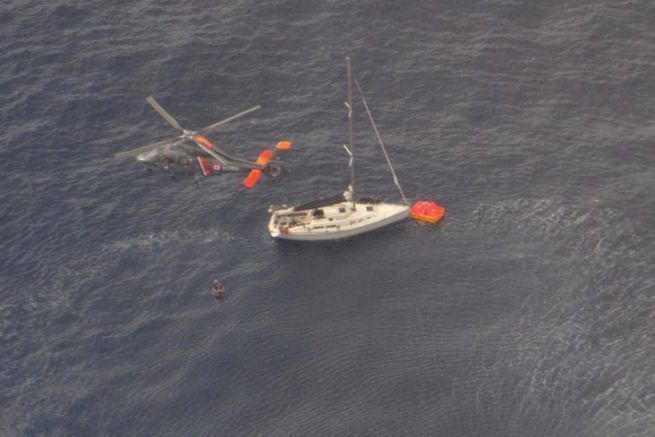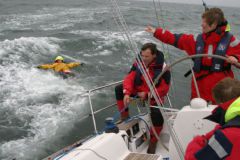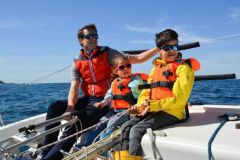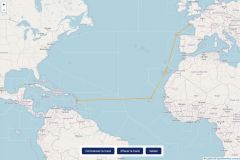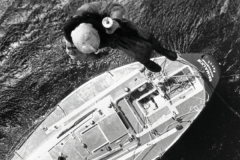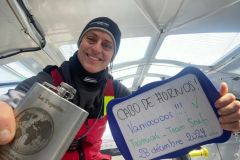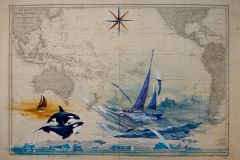Prepare your navigation well to avoid damage
"Before going sailing, you must first prepare your departure well and be able to manage yourself independently, anticipate changes in the weather, not leave with empty tanks, etc. You must have a practical mind and think according to your capacities and skills. Preparation beforehand is an essential basis. You must not overestimate your level of knowledge and ability", begins the spokesman of the Préfecture Maritime de Méditerranée (Premar Med).
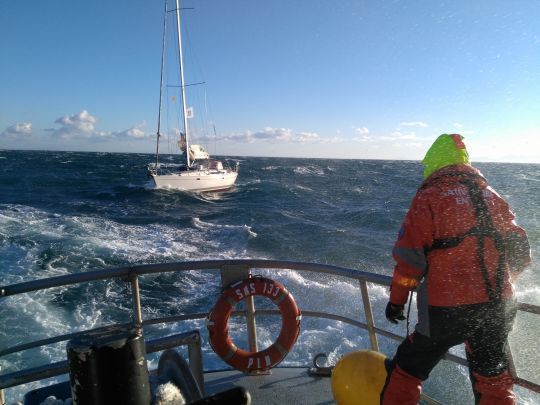
What to do when the damage occurs?
In France, it is necessary to contact the CROSS, which can be reached on the different coastlines of the Mediterranean, Atlantic and English Channel by telephone on 196 or via the VHF on channel 16 . Depending on the situation, the CROSS will determine which means to use: state means or private means that will come to refuel or tow the vessel. Yachtsmen can also count on the solidarity of the seafarers who cruise in their area of navigation, and who, even if the intervention of the rescue services is not compulsory, can also help in case of breakdown, technical problems, provisioning, etc.
"You have to prioritize based on the damage conditions. The priority is to save human life. If it is necessary to evacuate passengers, we will request a helicopter lift. When it is an emergency safety operation, helicopters are generally used. These can travel several dozen kilometers at sea. The Navy's offshore resources are also used. The CROSS are managed by the Maritime Prefectures, which determine the resources used: maritime gendarmerie, Navy, SNSMeuros"
It is also possible to combine several means in a rescue.
"During a hoist on a sailboat off the coast of Corsica, at night, in heavy seas, we called in a cargo ship in the area whose mission was to reduce the swell so that the passengers could be recovered safely."
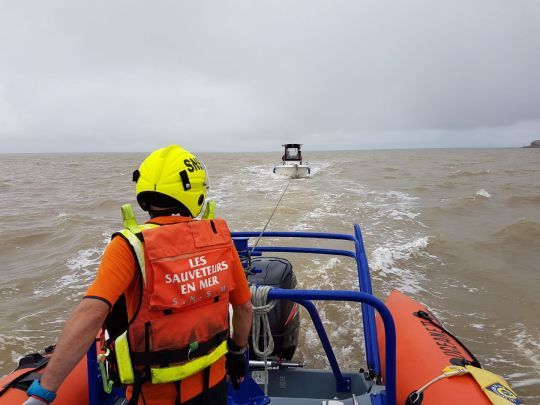
A difference between rescue and assistance
First of all, the rescue team must assess whether there is an immediate danger to the crew and the vessel. If so, a rescue operation is launched. It is not the same situation in the case of damage induced by bad judgment .
"Every summer, we are contacted by sailors renting sailboats, but sailing under motor because of lack of know-how. Once the tanks are empty, they are unable to sail back to port and ask us to intervene. In this case, the operation can be very expensive and it is the responsibility of the renter. He must also check that everything is correct on board, that the safety equipment is present and in good condition and sufficient for the number of people on board. In the event of a check, he is responsible, even though he may eventually turn against the owner."
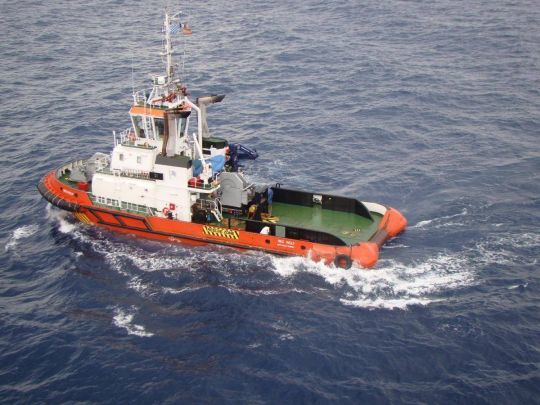
What to do in case of damage when you are far from the Euro coast?
If rescue in France is managed by the CROSS, it is not the same in the different maritime zones of the world. In total, the IMO (World Maritime Organization) Maritime Safety Committee has divided the world's oceans into 13 search and rescue zones, divided among the various States.
"In the preparation of the navigation, there is also the knowledge of the support points. You have to know in which areas you will be sailing and who to contact in case of need. In coastal navigation, the various semaphores spread out over the coastline of Metropolitan France ensure the link with boaters. Making contact is important to check that everything is going well on board."
Depending on the navigation area, the right contact person should be contacted, i.e. the competent MRCC (Maritime Rescue Coordination Center). In France, the CROSS Griz-Nez handles international vessels. They will choose the easiest option to come to the rescue of the yachtsman, depending on the urgency of the damage. The MRCC will then contact the boats in the area to request assistance, whether they are private or public vessels.

